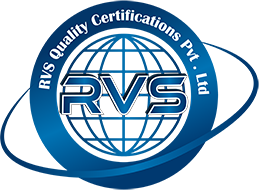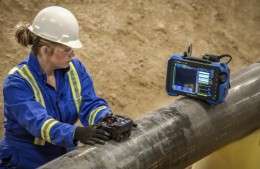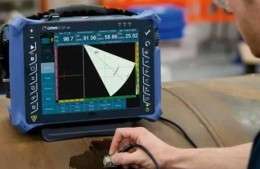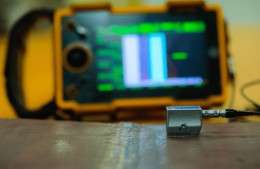I have been out of industrial activity after completing my graduation for about 2 years, then RVS Quality Certifications Pvt Ltd has changed my outlook on my career. Adopting a course in NDT has helped me launch my career.
How Does an Ultrasonic System Facility Enhance Product Quality
- By: Admin
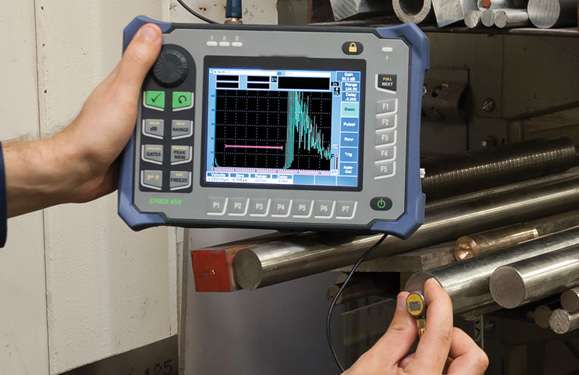
In today’s fast-paced industrial world, ensuring product quality is a top priority. A variety of advanced technologies have been developed to meet this demand, and one of the most effective is ultrasonic testing. By using high-frequency sound waves to examine materials, ultrasonic systems are able to detect defects and measure thickness in a non-destructive manner, making them invaluable tools in manufacturing processes. An Ultrasonic System Facility integrates this cutting-edge technology to elevate product quality, ensuring that every product meets the required standards.
Precision in Quality Control
One of the primary ways an ultrasonic facility enhances product quality is by providing highly precise measurements. Unlike traditional methods, ultrasonic testing can detect flaws like cracks, voids, and inclusions inside materials without altering their structure. This means manufacturers can identify and address issues early in the production process, which prevents defective products from reaching the market. The ability to inspect components with such accuracy allows manufacturers to produce items with uniform properties, improving overall reliability. Whether it’s testing metals, plastics, or composite materials, ultrasonic technology can provide real-time feedback on the integrity of a product, leading to fewer recalls and reduced waste.
Non-Destructive Testing for Improved Durability
Ultrasonic testing is non-destructive, which means that it does not compromise the material being tested. This is particularly advantageous in sectors like aerospace, automotive, and energy, where the durability and performance of products are of utmost importance. An ultrasonic facility ensures that the integrity of critical components is maintained, even after multiple rounds of testing. In these industries, products are often subjected to extreme conditions, so the ability to test for potential defects without damaging the item is essential. By using ultrasonic systems to monitor product integrity during production and after assembly, manufacturers can guarantee that their products will perform safely and reliably over time.
Enhancing Manufacturing Efficiency
Ultrasonic systems are also instrumental in improving manufacturing efficiency. With the ability to test materials and components on-site, manufacturers can quickly assess whether they meet the necessary standards without the need for labor-intensive inspections or shipping items to external labs. This not only accelerates the production timeline but also reduces costs associated with additional testing procedures. Moreover, ultrasonic systems in an ultrasonic facility can be automated, which allows for continuous monitoring throughout the manufacturing process. This automation reduces the likelihood of human error and ensures a more consistent quality check.
Integration with Other Quality Assurance Techniques
While ultrasonic systems are powerful on their own, they can be used in combination with other testing methods to provide a comprehensive quality assurance process. For example, Infrared Thermography Services offered by RVS Quality Certifications Pvt. Ltd., can be used alongside ultrasonic testing to detect thermal anomalies in components that might not be visible through standard inspection methods. When both technologies are applied, manufacturers can achieve a more holistic understanding of a product’s condition. Incorporating a multi-method approach in an ultrasonic facility enhances product quality even further, as it addresses potential problems from various angles, ensuring that every possible defect is caught before reaching the customer.
Meeting Industry Standards
For industries that require strict adherence to quality standards, such as aerospace and defense, ensuring compliance with regulations is critical. The use of NADCAP (National Aerospace and Defense Contractors Accreditation Program) approved NDT (Non-Destructive Testing) equipment in an ultrasonic facility ensures that all testing procedures meet the necessary quality and safety standards. NADCAP certification not only helps maintain consistency in testing but also reassures clients that the products have been rigorously tested and adhere to the highest industry benchmarks. Incorporating NADCAP NDT Equipment & NADCAP Inspection Requirements into ultrasonic testing processes provides manufacturers with the confidence that their products are thoroughly inspected to meet both customer expectations and regulatory standards.
Unlocking a Future of Flawless Products
Ultrasonic system facilities are revolutionizing the way manufacturers approach quality control. By enabling precise, non-destructive testing, manufacturers can produce high-quality, reliable products that meet industry standards. Combining ultrasonic testing with other advanced techniques like infrared thermography and adhering to NADCAP standards further ensures that product quality is never compromised. The integration of these technologies into the manufacturing process paves the way for a future where quality is not just a goal but a guarantee.
RVS is the absolute best value to learn Aerospace NDT Training Course to nurture my skills. I am completely satisfied with how affordable the service they provide. Thanks RVS Team for constant support.
I would like to thank RVS for their time and patience in helping me learn and grow with my NDT courses. I was able to work and learn at the same time, with no pressure. I would recommend RVS to anyone seeking to work and take courses at the same time. I accomplished the course and today I'm a Certified PCN Level II UT engineer.
RVS helped our new hires to acquire the comprehensive training they need, as well as for refresher courses for our current employees. This has worked well for us in obtaining the necessary NDT certifications.
Just a few lines to express my gratitude for your outstanding service over the past year. We would have no issue in referring to your organisation because of your customer devotion and professionalism.
NDT is employed in a wide range of industries, including oil and gas, aerospace, energy, power, nuclear, and transportation, with nearly endless career opportunities. A job in NDT is extremely dynamic, and ongoing training is required.
One of the advantages of a four-year NDT programme is that students can study in a more focused and instructive manner. For graduates, this offers up a plethora of new NDT employment options, including quality assurance, management, engineering design, research, NDT training, and teaching.
Non-Destructive Testing (NDT) Training Courses - Levels 1, 2 and 3.
The PCN (Personnel Certification in Non-Destructive Testing) is a programme that meets the BS EN ISO 9712 requirements for NDT technicians and supervisors. It is founded in the United Kingdom, but it has an impact on a number of countries in the European Union.
